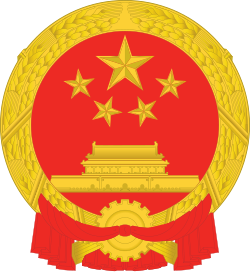| 国家金融监督管理总局 | |
 | |
 Headquarters | |
| Agency overview | |
|---|---|
| Formed | March 10, 2023 |
| Preceding agency | |
| Jurisdiction | |
| Headquarters | Beijing |
| Agency executive |
|
| Parent agency | State Council |
| Website | www |
The National Financial Regulatory Administration (NFRA) is a regulatory agency, under the State Council of the People's Republic of China. It is responsible for overseeing the financial sector (including banking and insurance) in China, except securities.